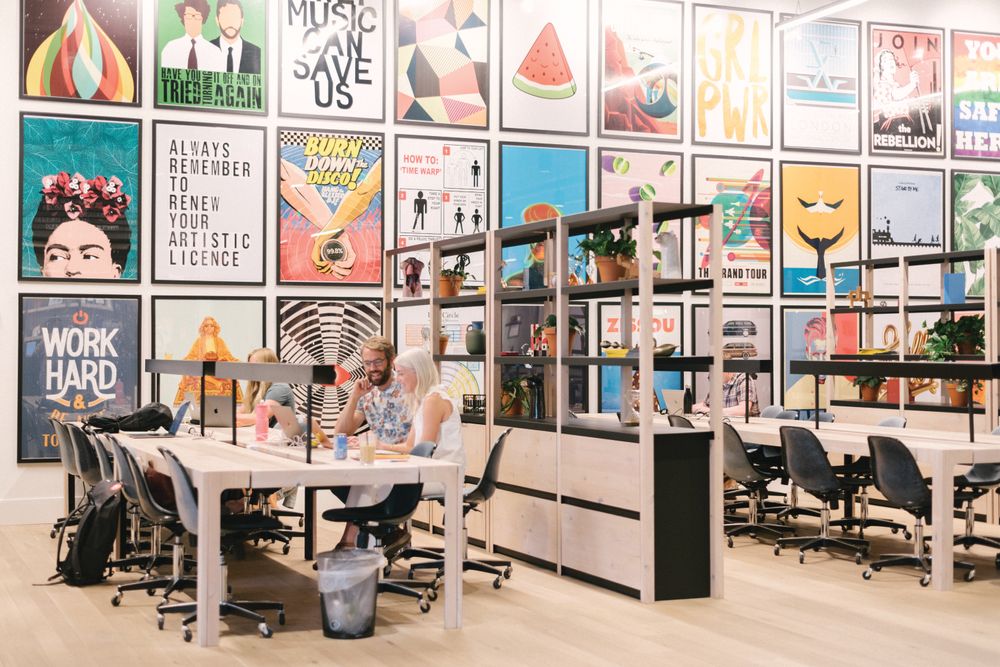This article was published in the Summer 2020 issue
by Arian Lewis, CEO + Founder, Kiln
Mere months ago, Utah and the job market at large was neck-deep in talent wars. Unemployment was less than 3% state-wide and even lower for the tech industry. In a report released by the Kem Garner Institute in February of this year, Utah was poised for an excellent 2020 with sustained growth in population and median income. Pair that with a median age of 31 and we were ready. Not one month later, Covid-19 hit and started a significant disruption of our way of life and economic growth at a state and national level. This doomsday-esque event has caused a ripple effect of fear in markets, investors, and frankly, ourselves. Lucky for Utah, the strong growth we were experiencing these past few years will ensure that we are well positioned to bounce back stronger than ever before. But why?
Experts at Moody’s Analytics recently released a report of Covid recovery from a regional perspective. Utah was one of two states to have two major cities in the top ten deemed most likely to recover quickly from the adverse effects of Covid. From Salt Lake City to Provo, we can point a finger to a booming tech industry and subsequent economic growth that will set Utah up for continued success. Between increased testing, hospital capacity, and the promise of a vaccine, it’s comforting to turn our sights ahead where Covid will be in the rearview mirror.
With a strong recovery, Utah will be in a unique position to mold and shape the trends of the future. The first trend to tackle? The future of work.
The future of work will be defined by flexibility. Our desire for flexibility will feature at the individual and corporate level. The individual is focused on finding a work and lifestyle balance, while companies are staying focused more than ever on flexibility and mitigating long-term liability. There has been a generational shift from income to freedom. Younger generations value the ability to work remotely over a bigger paycheck.
After the forced shift to work from home as a result of Covid, a lot of companies are, for the first time, considering remote work and permanent work from home strategies. On face, it seems like the right call. They decrease their op-ex spend and provide their teams with more flexibility. However, long term work from home will have negative consequences and ripple effects on team culture, creativity, product innovation and mental health. Though working from home has been easy for some, it has been more challenging for others, especially those in the Millennial and Gen Z generations. This divide is the same generational shift that has caused new conditions in offer letters. In a recent report by Hamilton Place Strategies, 81% of Millennials and 82% of Gen Z feel less connected while working from home. Of the same sample group, 57% of Millennials and 61% of GenZ shared that the amount of time spent on video calls each day make it harder to get work done.
Nicholas Bloom, an economics professor at Stanford, conducted a world-famous study on work from home several years ago. However, he has recently cautioned that the recent work from home strategies being employed by many companies as a result of Covid could result in a significant drop in innovation and productivity. “I fear this collapse in office face time will lead to a slump in innovation. The new ideas we are losing today could show up as fewer new products in 2021 and beyond, lowering long-run growth,” shares Bloom.
The question on our minds then turns to the root of this divide. As more Millennials and GenZ Workers have entered the market, it is easiest understood by looking at the divide between earners and learners.
Earners can be categorized into GenX and older. These individuals have been working longer, therefore are more likely to have not only higher salaries but lifestyles to accompany them. With more years of experience, they are more comfortable taking their skills and deploying them wherever life takes them.
On the flip side, we have learners or the Millennials and GenZ’rs of the workforce. They approach work differently with fewer financial obligations driving them and an increased focus on social awareness. They see work as a part of who they are, a part of their identity. These learners are feeling stunted and stuck working from an apartment bedroom without absorbing the community and experience that stems from office culture.
In conclusion, Covid gives us a renewed perspective on the rationale for an experience driven workplace. Work is not something that we simply do, it’s an expression of our own creativity and humanity. That humanity craves community to express its best self and Utah is just the community to make it happen.
Take Our Survey
Hi! The Silicon Slopes team is interested in your feedback. We are asking for a couple minutes to quickly provide feedback on our Silicon Slopes quarterly magazine publication. Click HERE and share your thoughts with us. Your responses will help us improve. Thanks!
*Read the latest issue of Silicon Slopes Magazine, Fall 2020


